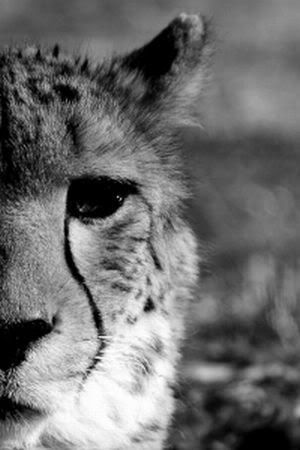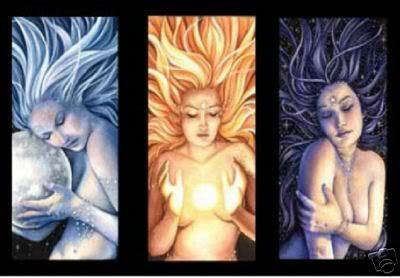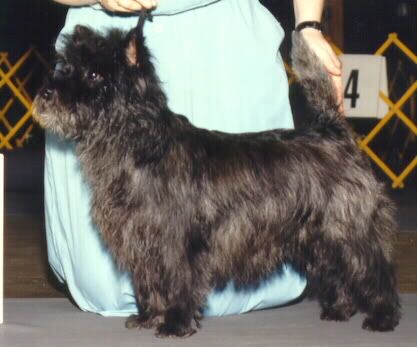Post by Peace on Aug 4, 2007 13:53:28 GMT -5
Definition of faeries
Faerie : from the Latin term for "fate" (fata), faeries (or fairies) are a "host of supernatural beings and spirits who occupy a limbo between earth and heaven" (Guiley). This is in recognition of the skill faeries had in predicting and even controlling human destiny. Faeries could be either good or evil creatures, and at various points in history have been confused with witches and demons
Fay or fey is the archaic term for faerie meaning bewitched or enchanted. This word derives from 'Fays' meaning Fates, and thought to be a broken form of Fatae. 'Fay-erie' was first a state of enchantment or glamour, and was only later used for the fays who wielded those powers of illusion. The state of enchantment is fayerie, which became fairy and faerie.
Other terms :
Fair Folk is a welsh name, often used in litterature and in scandinavian myths.
Good Neighbours is from Scotland. It had its origin in a desire to give no unnecessary offense. The `folk' might be listening, and were pleased when people spoke well of them, and angry when spoken of slightingly. The same feeling made the Irish Celt call them `honest folk' (Daoine Coire) or `good people' (Daoine Matha).
The Green Children was used in medieval litterature and versions of it is often used in modern Fantasy litterature.This theme has many variations like Greenies, Greencoaties and others.
The Old People refers as Faerie lived on earthlong before Mankind.
The Silent People (the people of peace, the still folk, or silently-moving people) comes from the Irish and Scottish Gaelic, the sith people. The name sith refers to `peace' or silence of Airy motion, as contrasted with the stir and noise accompanying the movements and actions of men. The Fairies come and go with noiseless steps, and their thefts or abductions are done silently and unawares to men.
Elf (ves) means also faerie and derived from the word alfarfrom the Nordic and Teutonic languages which is associated with mountains and water. This clearly illustrates the close relationship between faeries and the earth.
More generally, Faerie applies to four kind of entities :
Enchanters and enchantresses with supernatural powers.
Certain monsters and demons having a connection with fairies and/or having some of the characteristics of fairies. See the origin of Fairies
Nature fairies: Faeries were believed to be some of the spirits which populate all places and objects on Earth. The nature fairies are mermaids, water-spirits, tree-spirits and such.·
Faerie people (mainly the subject of this section) or the true Fairy, or Elfin race. The Fairies, according to the Scoto-Celtic belief, are a race of beings, the counterparts of mankind in person, occupations, and pleasures, but unsubstantial and unreal, ordinarily invisible, noiseless in their motions, and having their dwellings underground, in hills and green mounds of rock or earth. They are addicted to visiting the haunts of men, sometimes to give assistance, but more frequently to take away the benefit of their goods and labours, and sometimes even their persons. They may not be present in any company, though mortals do not see them. Their interference is never productive of good in the end, and may prove destructive. Men cannot therefore be sufficiently on their guard against them.
Faerie : from the Latin term for "fate" (fata), faeries (or fairies) are a "host of supernatural beings and spirits who occupy a limbo between earth and heaven" (Guiley). This is in recognition of the skill faeries had in predicting and even controlling human destiny. Faeries could be either good or evil creatures, and at various points in history have been confused with witches and demons
Fay or fey is the archaic term for faerie meaning bewitched or enchanted. This word derives from 'Fays' meaning Fates, and thought to be a broken form of Fatae. 'Fay-erie' was first a state of enchantment or glamour, and was only later used for the fays who wielded those powers of illusion. The state of enchantment is fayerie, which became fairy and faerie.
Other terms :
Fair Folk is a welsh name, often used in litterature and in scandinavian myths.
Good Neighbours is from Scotland. It had its origin in a desire to give no unnecessary offense. The `folk' might be listening, and were pleased when people spoke well of them, and angry when spoken of slightingly. The same feeling made the Irish Celt call them `honest folk' (Daoine Coire) or `good people' (Daoine Matha).
The Green Children was used in medieval litterature and versions of it is often used in modern Fantasy litterature.This theme has many variations like Greenies, Greencoaties and others.
The Old People refers as Faerie lived on earthlong before Mankind.
The Silent People (the people of peace, the still folk, or silently-moving people) comes from the Irish and Scottish Gaelic, the sith people. The name sith refers to `peace' or silence of Airy motion, as contrasted with the stir and noise accompanying the movements and actions of men. The Fairies come and go with noiseless steps, and their thefts or abductions are done silently and unawares to men.
Elf (ves) means also faerie and derived from the word alfarfrom the Nordic and Teutonic languages which is associated with mountains and water. This clearly illustrates the close relationship between faeries and the earth.
More generally, Faerie applies to four kind of entities :
Enchanters and enchantresses with supernatural powers.
Certain monsters and demons having a connection with fairies and/or having some of the characteristics of fairies. See the origin of Fairies
Nature fairies: Faeries were believed to be some of the spirits which populate all places and objects on Earth. The nature fairies are mermaids, water-spirits, tree-spirits and such.·
Faerie people (mainly the subject of this section) or the true Fairy, or Elfin race. The Fairies, according to the Scoto-Celtic belief, are a race of beings, the counterparts of mankind in person, occupations, and pleasures, but unsubstantial and unreal, ordinarily invisible, noiseless in their motions, and having their dwellings underground, in hills and green mounds of rock or earth. They are addicted to visiting the haunts of men, sometimes to give assistance, but more frequently to take away the benefit of their goods and labours, and sometimes even their persons. They may not be present in any company, though mortals do not see them. Their interference is never productive of good in the end, and may prove destructive. Men cannot therefore be sufficiently on their guard against them.


 www.healingspiritcommunity.com
www.healingspiritcommunity.com


 Hugs and Stuff Girly <3
Hugs and Stuff Girly <3
 ~love hugs and stuff~ I'm just very selective about the reality I accept." - Calvin and Hobbs{=}{/=}{=}{/=}
~love hugs and stuff~ I'm just very selective about the reality I accept." - Calvin and Hobbs{=}{/=}{=}{/=}
 Forum Buddha[M:0]
Forum Buddha[M:0]